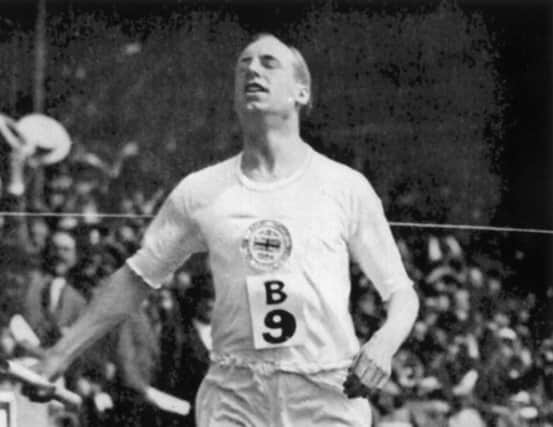6 things you should know about legendary athlete Eric Liddell


Eric Liddell lived a very interesting life, and not just on the athletics track. Here is everything you need to know about his incredible story.
He won the 400m at the Olympics in Paris
During the summer of 1924, Paris was going through a sweltering heatwave. In the 10,000m final, 12 of the 39 competitors who started the race collapsed before they could finish. Considering Liddell's uncompromising running style, this was hardly going to work in his favour. Not to be deterred, he ran the only race he knew, which was to cane it from the start and just keep going.
Advertisement
Hide AdAdvertisement
Hide AdSituated in lane eight, he couldn't see what his rivals were running, but they could sure see him as he sprinted out in front. Everyone expected him to wane on the second 200m, for he had surely expelled too much energy. Instead, he refused to drop his pace, winning the final as an underdog by a full six yards.
He refused to compete on a Sunday
In addition to the 400m, Liddell would have ran in the heats for the 100m and the 4x400m as well, but for one problem: the heats for those events were on a Sunday. A devoutly Christian man, Liddell believed it wasn't right for sports to take place on a Sunday. The fact that it was the Olympic Games was irrelevant, he wasn't going to run. Even the UK Parliament putting pressure on him to change his mind didn't work.
Seeing as Great Britain came third to the Americans without him, then defeated their rivals two weeks later with him in the line up, he probably gave up another gold medal in order to stick to his believes, not that it would have concerned him. It has been said that later in life, while he was a missionary, he did partake in some sporting activity on a Sunday by helping to referee some of the children's football games.
The film Chariots of Fire is based on him
The Oscar-winning movie is a true story about the life of Eric Liddell and fellow Brit Harold Abrahams, with actor Ian Charleson playing the part of Liddell. It stays pretty close to the source material with a couple of exceptions. One scene shows Liddell finding out about the 100m heats taking place on a Sunday just as he's about to board the boat to France. This was added for dramatic effect. In real life, Liddell knew about the schedule for months in advance.
He quit athletics to become a missionary
Born to Scottish missionary parents in China, he always insisted on following their footsteps. It was his calling. Regardless of how much success he tasted as an athlete (he was also capped seven times by the Scotland's rugby national team) there was no way he was going to deviate from the path he set for himself. In all, Liddell's sporting career really only lasted from when he joined Edinburgh University in 1920 until his retirement in 1925. It makes his success all the more remarkable.
He died in a WWII camp
Despite increasing tensions in the area, Liddell decided to stay in China and continue his missionary work while sending his wife and two children to live in Canada. When WWII started, he was interned in a Weihsien camp. It was later reported that Winston Churchill had arranged for his departure from the camp, but Liddell insisted a pregnant woman go in his place. There's little evidence to support this story. It may just be a tale to add to the legend. The fact that it's believable, though, shows the kind of character he was.
Five months from liberation, Liddell died of a brain tumour. He had no idea regarding the severity of his condition, writing to his wife on his final day that he thought he was having a "nervous breakdown" due to the stress of overwork.
He's officially Scotland's most popular athlete
In the year 2002, Scotland thought it was about time the nation introduced a sports hall of fame. Initially 50 of the best sportsmen and women from our nation's history were included, with a handful to be inducted on varying years in the future. Liddell was not only included in the original 50, he was named the most popular Scottish sports figure ever in the public nomination vote.